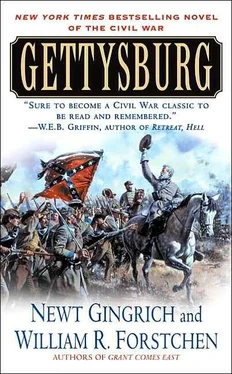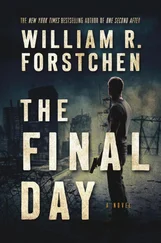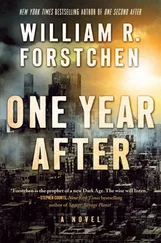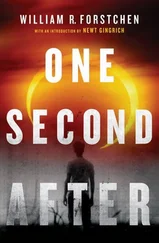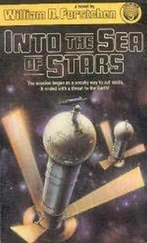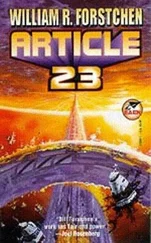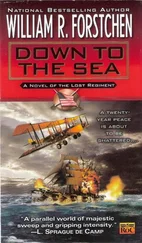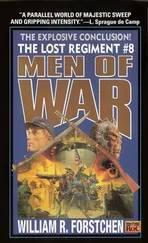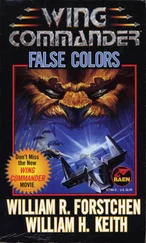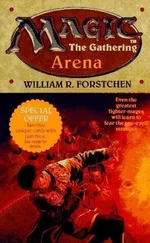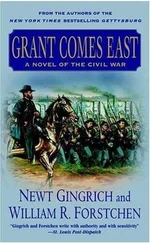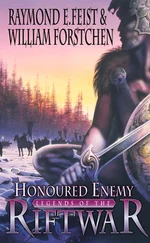William Forstchen - Gettysburg
Здесь есть возможность читать онлайн «William Forstchen - Gettysburg» весь текст электронной книги совершенно бесплатно (целиком полную версию без сокращений). В некоторых случаях можно слушать аудио, скачать через торрент в формате fb2 и присутствует краткое содержание. Жанр: Исторические приключения, на английском языке. Описание произведения, (предисловие) а так же отзывы посетителей доступны на портале библиотеки ЛибКат.
- Название:Gettysburg
- Автор:
- Жанр:
- Год:неизвестен
- ISBN:нет данных
- Рейтинг книги:5 / 5. Голосов: 1
-
Избранное:Добавить в избранное
- Отзывы:
-
Ваша оценка:
- 100
- 1
- 2
- 3
- 4
- 5
Gettysburg: краткое содержание, описание и аннотация
Предлагаем к чтению аннотацию, описание, краткое содержание или предисловие (зависит от того, что написал сам автор книги «Gettysburg»). Если вы не нашли необходимую информацию о книге — напишите в комментариях, мы постараемся отыскать её.
Gettysburg — читать онлайн бесплатно полную книгу (весь текст) целиком
Ниже представлен текст книги, разбитый по страницам. Система сохранения места последней прочитанной страницы, позволяет с удобством читать онлайн бесплатно книгу «Gettysburg», без необходимости каждый раз заново искать на чём Вы остановились. Поставьте закладку, и сможете в любой момент перейти на страницу, на которой закончили чтение.
Интервал:
Закладка:
Lincoln finally turned and looked back at Haupt "Good luck in Harrisburg, sir, and thank you."
"Thank you, Mr. President" and Herman took the president's hand, Lincoln's grip warm and powerful.
"General Haupt, you provide the material, and I will provide the will."
11:00 PM, JULY 4,1863
LITTLESTOWN
Gen. Robert E. Lee walked into the church, taking off his battered straw hat It was a Lutheran church, simple in its design and appointments. Flashes of light outside briefly illuminated the stained-glass windows. The distant roll of thunder and of gunfire was continuous. He tried to block the noise out of his mind.
Lee turned and looked at Walter, who had walked up to the altar and, after struggling with several damp matches, finally managed to strike a light touching the flame to the two candles.
Lee nodded his thanks. "I'll be along in a few minutes, Walter." "Yes, sir."
The door to the church opened, several staff coming in. Lee said nothing as they approached.
"Sir," one of them cried, "Generals Johnson and Hood beg to report that they can no longer keep track of the number of prisoners. Pickett just sent back a report that he will push on toward Gettysburg as long as one of his men can march with him. He's taken twelve colors and more than a thousand prisoners from the Fifth Corps. General Stuart sends his compliments as well, sir, and will block every road as ordered."
"Any word from General Longstreet yet?" Lee asked. "No, sir. But we can see the flashes of gunfire from his columns. They are pushing the Yankees straight into us." Lee said nothing. "Sir, are there any orders?" Again a moment of silence. "Sir?"
Lee looked at the three with a sense of infinite weariness. They were really nothing more than boys, filled with that strange exuberance that sometimes comes after a battle, exhaustion not yet laying them low.
"Repeat the orders I've already given," Lee said softly.
"Show mercy now. The time for killing is over. Show mercy." "Yes, sir."
Walter stepped between the messengers and Lee, gently turning them about One of the men stopped and came up to Lee, extending his hand. "Please forgive me, sir," the lieutenant gasped, "I just want to be able to one day tell my grandchildren that I shook your hand this day, this most glorious Fourth of July."
Lee nodded and briefly extended his hand, forgiving the boy his bad manners.
Tears came to the boy's eyes. "God bless you, sir," he stammered and men, embarrassed at his impetuous act he fled.
Walter looked back and Lee just motioned for him to leave and close the door.
Alone, Lee sat down in a pew, and leaning forward he clasped his hands, resting his forehead upon them.
Walter Taylor stood outside the church, arms folded, guarding the door. A small crowd had garnered, curious civilians, wounded soldiers, staff, even a few Union prisoners, disarmed, standing in the rain.
He waited and as the minutes passed, he finally became concerned. Throughout that long day he had watched his general almost like a child, now an adult keeping a watchful gaze over an aging parent Three times during that final drive into Littlestown, he had been compelled to hold the general back, for the fire was in him as he drove Pickett forward, directing the battle, reeling from exhaustion as they finally broke into the town and gained the road that cut off the Union line of retreat
Finally, after a half hour of waiting, he felt a flicker of fear. Motioning for the cavalry escort to block the door, he slowly opened it and stepped back into the church.
There was a terrible flash of terror. Lee was slumped over, head resting against the next pew. Taylor carefully walked up, about to cry out In the candlelight Lee looked so deathly pale.
He stood by the general's side, not sure for a moment what to do. "Sir?" he whispered. There was no response.
Ever so gently he reached out, touching Lee on the shoulder, terrified that when he did so Lee would just simply collapse.
Leaning over, he finally heard a gentle respiration.
Walter stood there for a moment and then began to weep. Taking off his rain-soaked jacket, he balled it up, placing it on the pew by Lee's side. Ever so gently he put his arms around his general and eased him over on his side, the jacket now a pillow. Stepping next to the pew, he lifted the old man's legs and carefully stretched them out.
Lee stirred for a moment "Roonie," he whispered.
"He'll be all right sir," Walter whispered back. "Your boy will be all right"
Lee did not stir, lost in exhausted sleep.
Going up to the altar, Walter blew out the two candles. Sitting down in the pew across from his general, Walter Taylor kept vigil throughout the long night.
And thus the Fourth of July, 1863, came to an end.
8:00 AM, JULY 5,1863
LlTTLESTOWN
It had been a long night the longest of his life, General Longstreet at the head of the column of Pender's division, led the way up the main street of Littlestown. The road to either side was packed to overflowing with troops, both Confederate and Union. The men of Johnson's division cheered his approach, and at that moment it touched him profoundly.
These were the veterans of Stonewall, and across the last year-since the Army of the Valley had fallen in with the ranks of what would become the Army of Northern Virginia-he had always sensed a certain haughtiness on their part, that they saw their leader, "Old Jack,” as the superior of Lee's two lieutenants.
That was gone this morning. Men saluted at his approach, then took off their hats, shouting and waving. Behind him the mud-spattered boys of Pender marched with a jaunty swagger, returning the cheers. A group of Hood's men, drawn up in a small column, each of the men carrying a captured battle flag, fell into the line of march to resounding cheers.
The disarmed Union prisoners, part of a long column of troops now being marched back toward Westminster, had been pushed to die side of the road. They looked up at him, some with open hatred, most with that vague, shocked, distant look of troops who had seen and endured far too much. An officer in their midst stepped forward a pace and saluted.
Pete hesitated, looking down. It was Maj. Gen. Abner Doubleday, left arm in a sling, a comrade from an eternity ago, a fellow graduate of the class of 1842.
"Abner, sorry to see you're hurt," Pete said. "How are you?"
"That was you I faced yesterday at Union Mills, wasn't it, Pete?"
"Yes, Abner"
"A long way from West Point now, aren't we?" "Yes, Abner."
'And the pledge you made mere to our flag." Pete could not reply.
"Abner, if you need anything, let me know, send for me."
Abner shook his head. "No, Pete, I won't"
"I'm sorry, Abner."
"So am I, Pete. So am I."
Pete drew up, saluted, and rode on.
Hospital flags, hanging sodden and limp in the morning rain, were draped in the doorways of churches and school-houses. Every house in town was a hospital as well. Union and Confederate surgeons and orderlies, working side by side, tended to the wounded. Women of the town scurried back and forth, carrying buckets of water, torn-up bedsheets, and blankets.
A grim sight hung in the center of town, a dead Confederate soldier at the end of a rope slung over a tree limb… ATTEMPTED ASSAULT OF A WOMAN was written on the sign draped around his broken neck, two provost guards standing beneath the corpse.
The men marching behind Pete fell silent at the sight of him, more than one spitting on the ground at the feet of the dead man as they passed.
Passing through the town, the column worked its way up a low hill, an orderly waiting for them atop the crest, motioning for Pete to follow his lead.
As they crested the ridge, the sight spread out before him was breathtaking. The fields north of town had become a vast holding area for thousands of prisoners, a long, serpentine column of them now marching along the side of the road in the opposite direction, heading south.
Читать дальшеИнтервал:
Закладка:
Похожие книги на «Gettysburg»
Представляем Вашему вниманию похожие книги на «Gettysburg» списком для выбора. Мы отобрали схожую по названию и смыслу литературу в надежде предоставить читателям больше вариантов отыскать новые, интересные, ещё непрочитанные произведения.
Обсуждение, отзывы о книге «Gettysburg» и просто собственные мнения читателей. Оставьте ваши комментарии, напишите, что Вы думаете о произведении, его смысле или главных героях. Укажите что конкретно понравилось, а что нет, и почему Вы так считаете.
